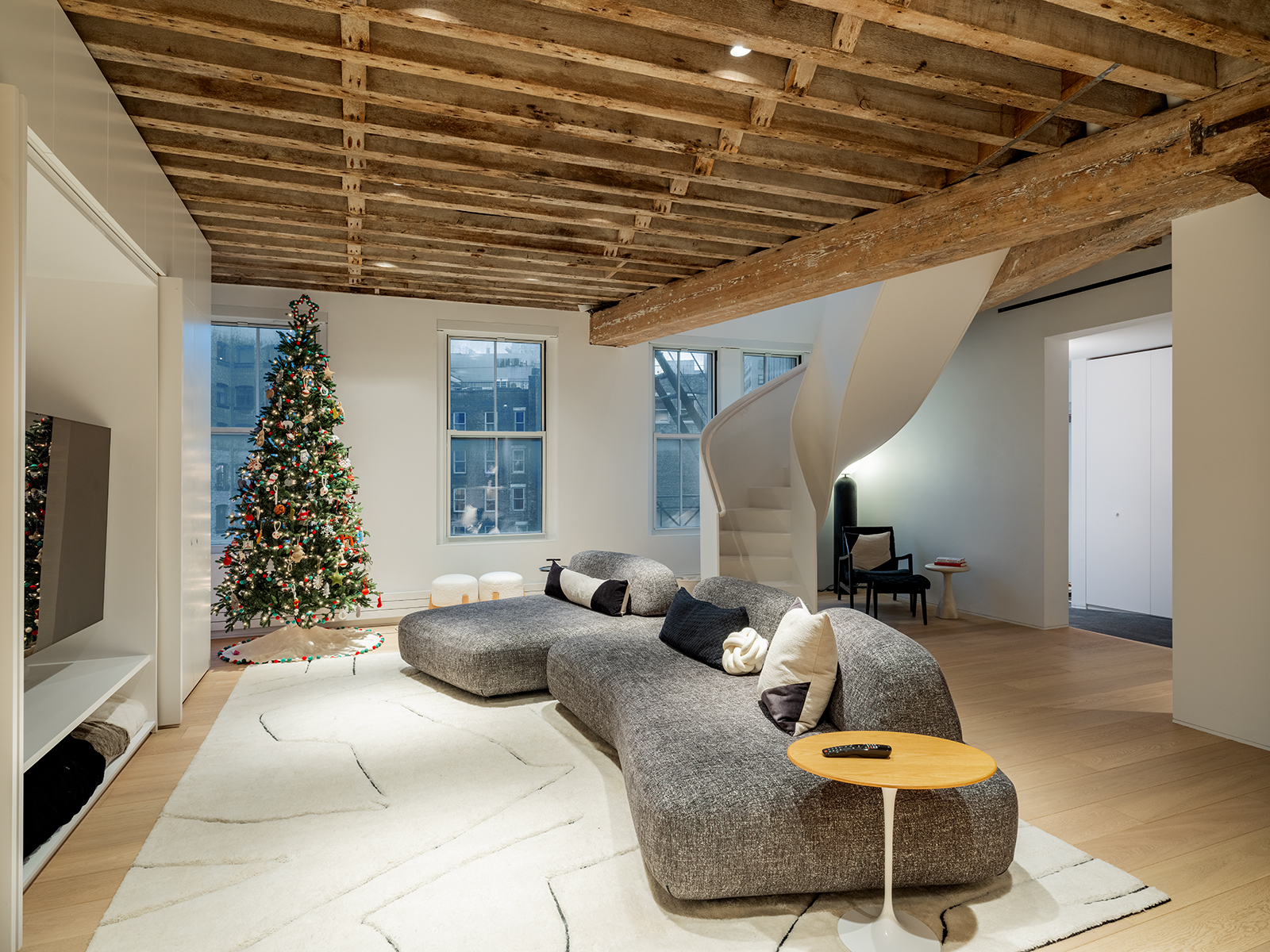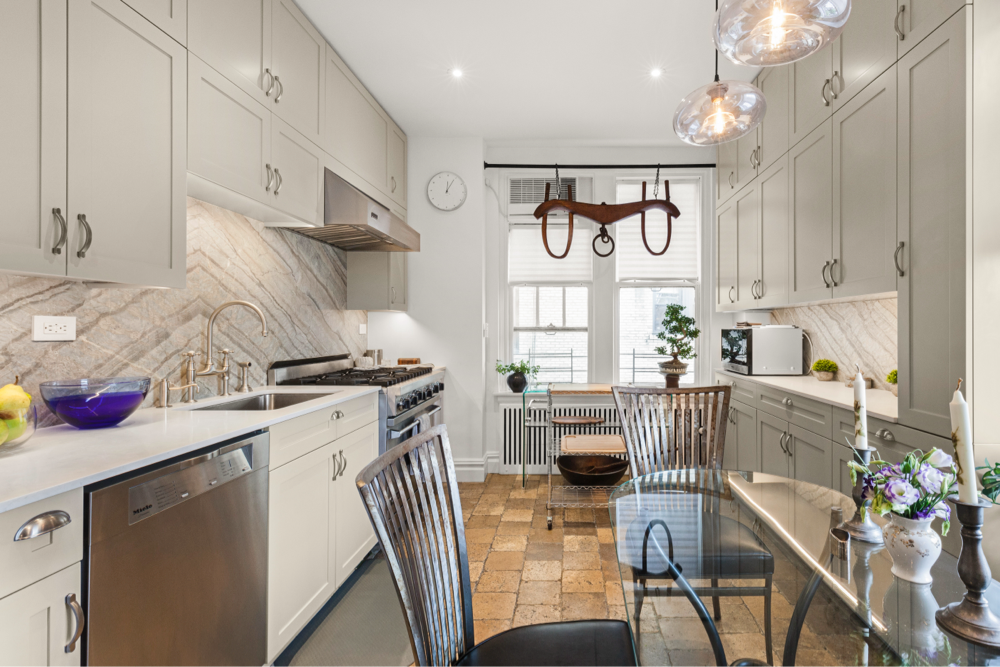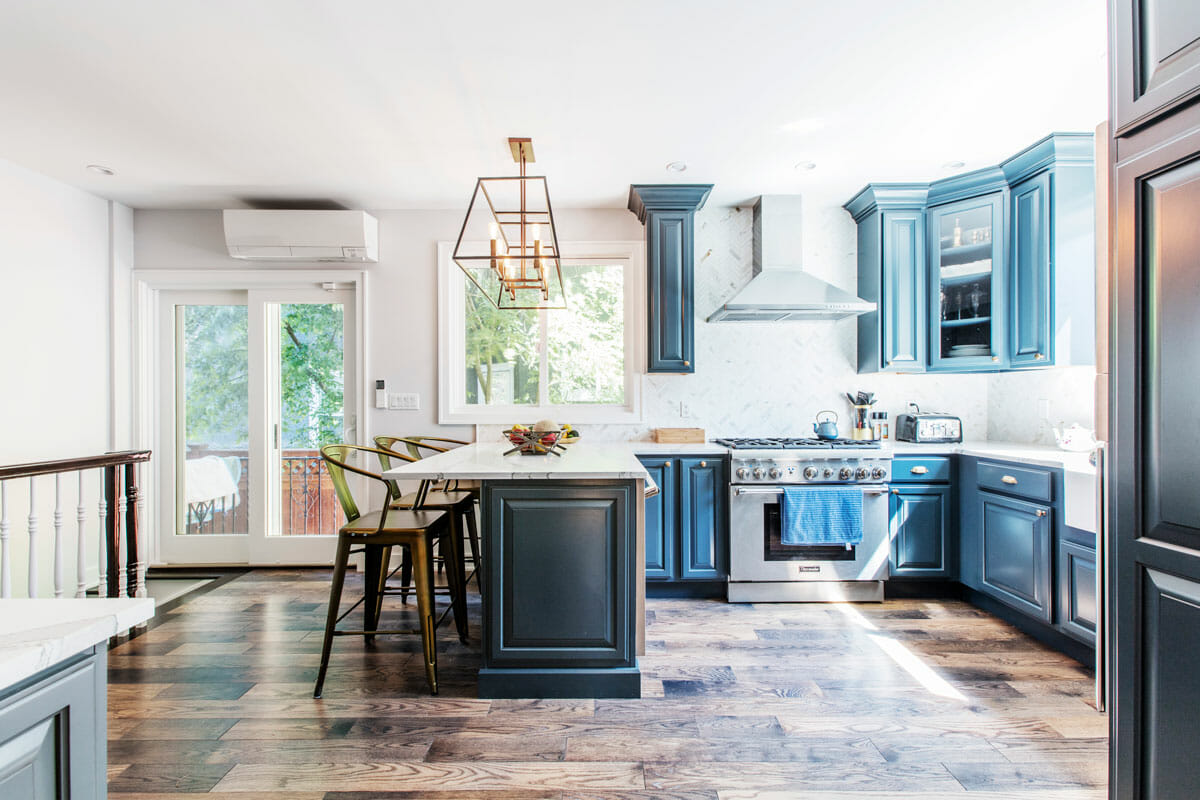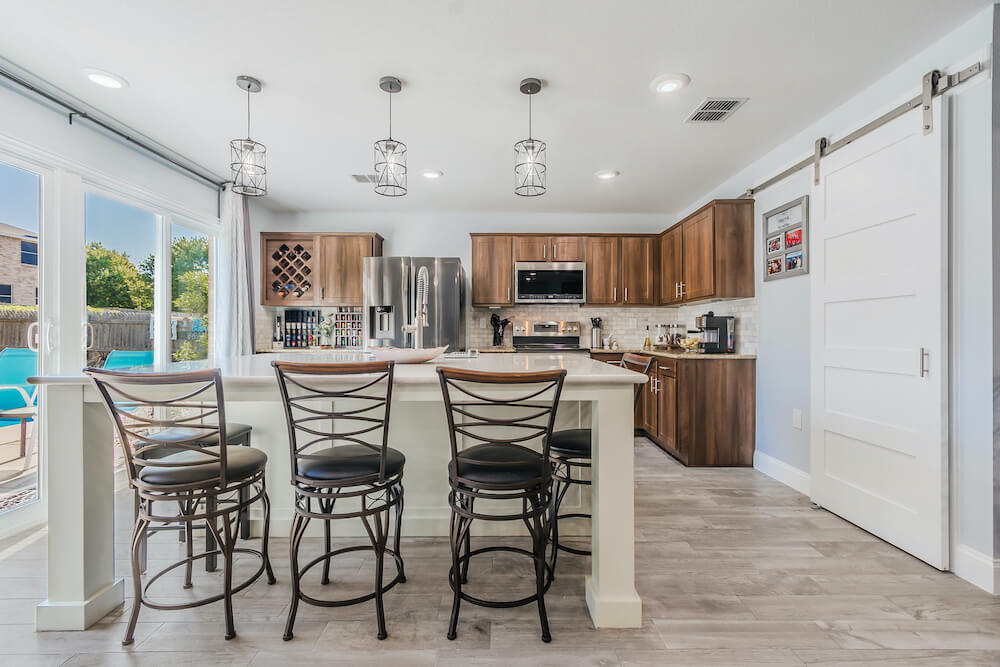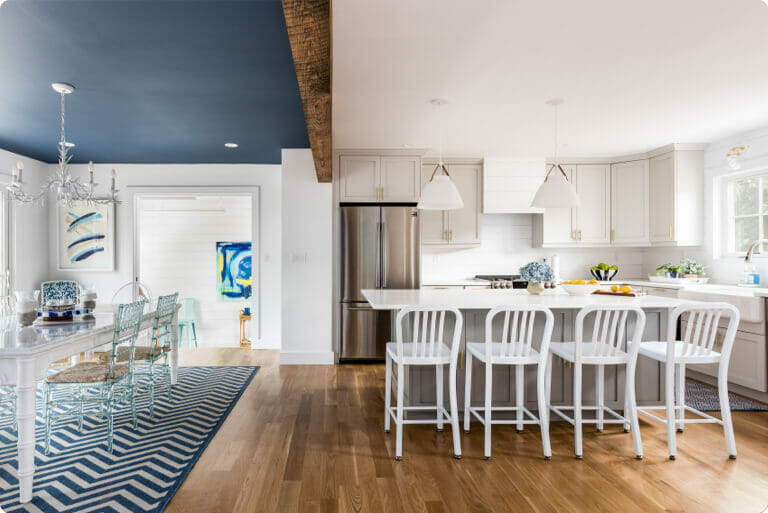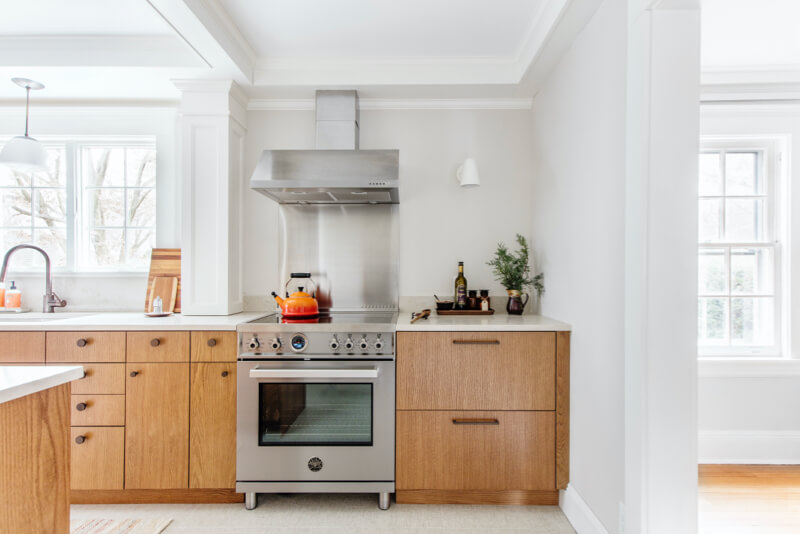Renovating in Philadelphia? Here’s What You Need to Know
No two cities are exactly alike when it comes to residential remodel projects. This is especially true for Philadelphia. As one of the oldest municipalities in the U.S., Philadelphia’s unique character is reflected in its diverse housing stock. According to Sweeten founder and CEO, Jean Brownhill, ‘Philadelphia boasts a distinctive architectural blend, ranging from historic rowhouses and trinities to contemporary condos.
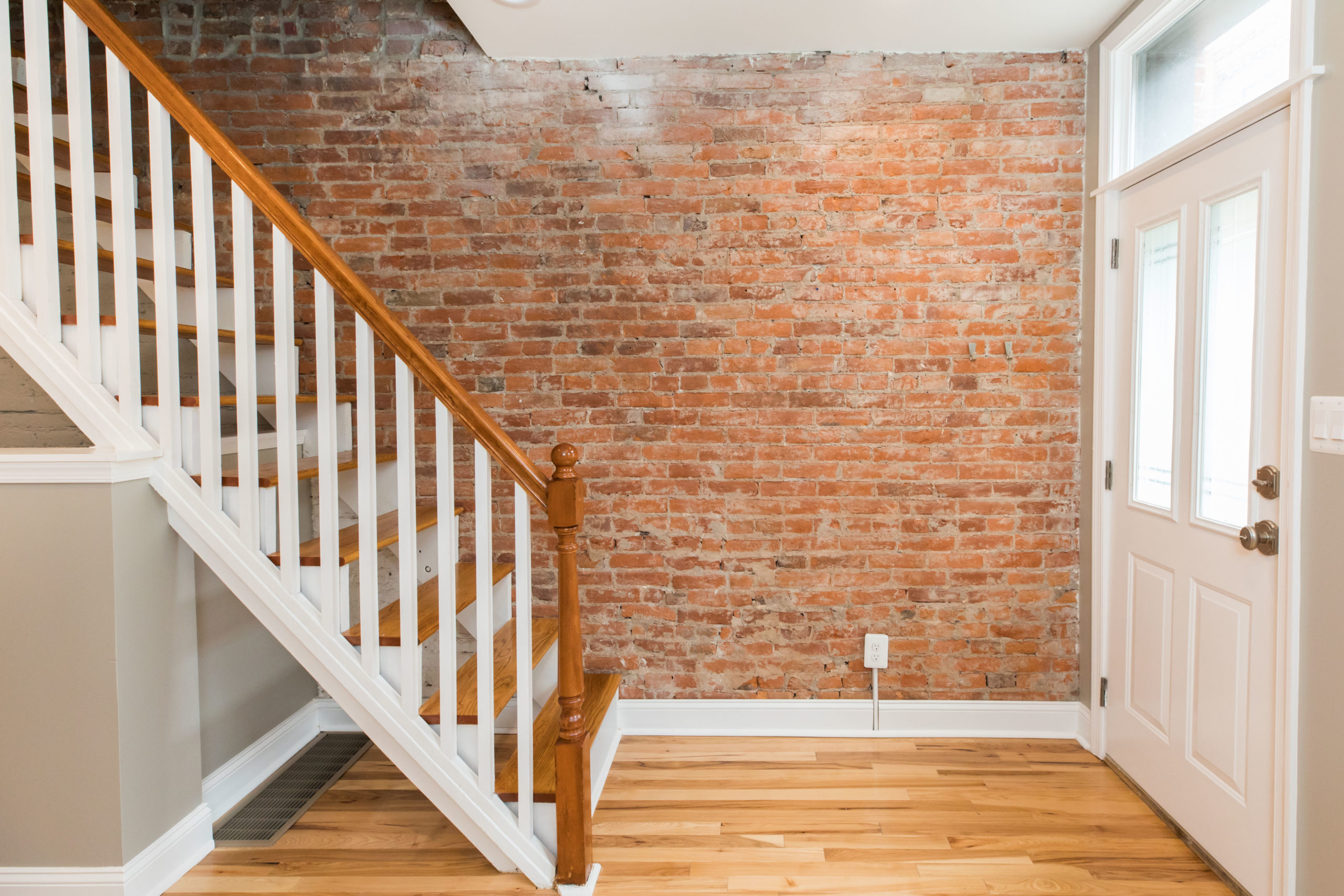
With such a unique housing supply, it’s essential for Philly homeowners considering property renovation to be aware of the specific rules and regulations that apply to their project. In this guide, Sweeten provides valuable insights into the nuances of remodeling Philadelphia. We’ll explore the advantages, challenges, and expert tips tailored to this historic city.
At Sweeten, we’re experts at all things general contractors — we pre-screen them for our network, carefully select the best ones for your remodeling project, and work closely with hundreds of general contractors every day. So, we’ve tapped our internal expertise to bring you this guide.
In Philadelphia, a licensed general contractor can file your permits
Unlike New York, where an engineer or architect must file building permits, a licensed general contractor can do the job in Philly. If a contractor files the permit, actually the most likely scenario here, the contractor will need a commercial activity license and a contractor’s license from the City of Philadelphia. A contractor license requires a certificate of insurance, at least one supervising employee to have completed OSHA 30 training and a tax clearance form, which proves the contractor filing the building permit application does not owe the city any money. (If they are in debt to the city—i.e. with taxes—the application will be rejected.)
If a contractor is doing more than $500 worth of work for you, they will need a contractor’s license. Why is a general contractor with a license the wise choice? (Well, the easy answer is: it would be illegal not to have one!) But it’s also for the good of your project, as it ensures the contractor knows how to run a safe worksite and has adequate insurance.
Types of Permits: Common permits required for home renovation projects include:
- Building permits
- Electrical permits
- Plumbing permits
- Zoning permits
Smaller Philadelphia remodeling jobs may qualify for EZ Permits
While other cities might require building plans for even the smallest jobs, Philly doesn’t. The city’s EZ Permits system allows some building, electrical, and plumbing permit applications involving single-family homes to be submitted without plans. Projects that get the EZ Permits go-ahead include installing flooring, replacing roof coverings, putting in certain pools and spas, or adding a rear deck that is less than 216 square feet. (Take note: any buildings on the Philadelphia Historical Registry will not qualify for EZ Permits, regardless of the project’s scope.)
If your project does not fall under EZ Permits, and the budget exceeds $25,000, three sets of building plans must be submitted—all signed and sealed by a design professional registered in the state of Pennsylvania. The Structural Design Criteria form is also required if your renovations are substantial, such as moving a load-bearing wall and reframing windows and doors.
Are you renovating a landmark or in a historic district in Philadelphia?
If you purchased a landmarked home in need of TLC, the city’s Historical Commission has strict regulations to follow. You most likely already know if your home is a landmark or in a historic district. But if you want to double-check, here’s a list. Are you altering the outside of your home (the roof, back, sides, and/or front)? In that case, your historic home project will need the blessing of the commission. This is different from other cities, where only renovations on the street-facing facade of a historic building are subject to additional approvals. Sweeten brings homeowners an exceptional renovation experience by personally matching trusted general contractors to your project, while offering expert guidance and support—at no cost to you. Renovate expertly with Sweeten
If your project involves a historic home in Philly, then a general contractor, engineer, or architect who has some experience working with the Historic Commission will be very helpful. (This will come in handy, as they will likely be filing the paperwork!)
Tips for renovating Philadelphia’s rowhouses
The pride of the city’s real estate is its rowhouses. The side-by-side homes are more numerous than any other building type in the city. Many are now multi-family housing units. One common type of rowhouse is the three-story trinity, (tiny, three-story homes built for factory workers in the 1700s). You’ll also see larger, Victorian-style rowhouse structures, which were historically occupied by more affluent locals.
Rowhouses are so important to Philadelphia’s identity that the city actually created a manual for those who own them! The manual outlines why they are significant and how to renovate them. For example, it encourages rowhouse owners to consider the impact of facade renovations on the look of their neighborhood. (This even applies if the building isn’t a landmark or in a historic district.)
The manual shares a few more rowhouse-specific renovation tips. For example, it recommends using a modified asphalt—a specific type of material—for the gently sloping roofs, which most rowhouses have. The manual also covers serious construction changes, like adding a garage under the home. (Another upside: there’s plenty of general renovation advice in the manual that can relate to non-rowhouse owners!)
Rowhouses: A Philadelphia Staple
Rowhouses, or rowhomes, are a defining feature of Philadelphia’s urban landscape. These narrow, connected homes offer a unique blend of city living and historic charm. While they can be a great option for many, they also present specific challenges and opportunities for property renovation.
- Shared Walls: One of the primary considerations when renovating a rowhouse is the shared walls with neighboring units. Careful planning and coordination are necessary to avoid noise and structural issues.
- Limited Outdoor Space: Rowhouses often have smaller yards or courtyards compared to single-family homes. Maximizing outdoor space through clever design and landscaping is essential.
- Historic District Restrictions: Many Philadelphia rowhouses are located in historic districts, which impose specific regulations on renovations. It’s crucial to consult with local authorities to understand the guidelines and obtain necessary permits.
Apartments and Single-Family Homes: Alternative Options
While rowhouses dominate Philadelphia’s housing market, apartments and single-family homes also offer viable options for those seeking a different living experience.
- Apartments: Apartments provide a more convenient and often more affordable living arrangement, especially for individuals or small families. They offer easy access to amenities and public transportation.
- Single-Family Homes: For those who desire more space and privacy, single-family homes can be a great choice. They provide ample outdoor space and offer a more traditional living experience.
Embarking on a Philadelphia home renovation can be a rewarding but challenging journey. By understanding the unique characteristics of Philadelphia’s housing stock, navigating the permitting process, and working with experienced professionals, you can transform your home into a space that reflects your personal style and enhances your quality of life.
Remember, a successful renovation is not just about the final result but also the process itself. Enjoy the journey, embrace the challenges, and celebrate the victories along the way. With careful planning, dedication, and a touch of Philly grit, you can create a home that truly feels like yours.
Ready to start a Philadelphia home remodel?
Post your project on Sweeten today and get matched with our vetted general contractors for free! Find endless home renovation inspiration, detailed guides, and practical cost breakdowns from our blogs.
—
Want to see Sweeten’s handiwork in Philadelphia?
A full gut renovation of a Bella Vista rowhouse damaged by a massive fire.
A suburban Philadelphia kitchen doubles in size, with a fresh modern look.
Sweeten handpicks the best general contractors to match each project’s location, budget, scope, and style. Follow the blog for renovation ideas and inspiration and when you’re ready to renovate, start your renovation on Sweeten.

